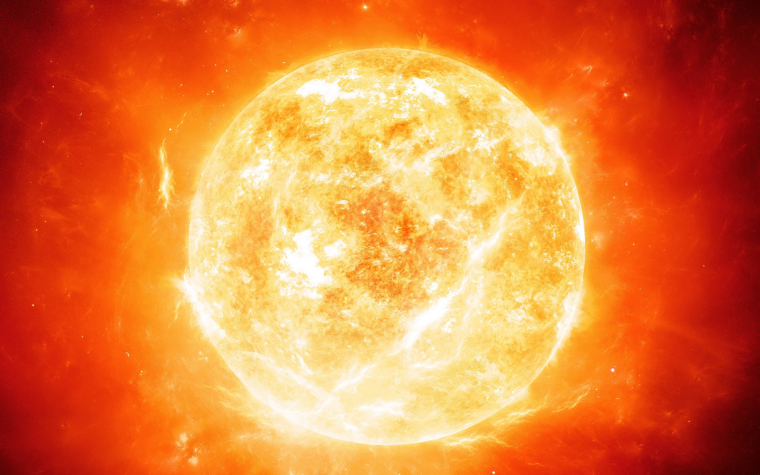
The sweltering heat of the sun these days is anything but pleasant; the heat is so intense that even the walls [from the inside of some rooms] are not spared. This kind of heat could make a sun-tanning freak have a rethink. The heat is certainly a consequence of the high intensity of sun as witnessed in different states. For instance, the approximate average temperature over the past few days in Lagos has been 34 degrees celsius; Kano 39; Abuja 37 and Rivers 32.
Despite this searing heat, the sun does have some desirable advantages it offers to the human. Scientists have found out that the sun can help to improve mood; alleviate stress and also provide us with Vitamin D which is one of the key elements responsible for the formation of strong bones.
But then, how much sun is too much for our well-being? – talk about the negative effects of the sun. Studies have shown that prolonged exposure of human beings to a temperature of about 32-40oc can cause heat exhaustion, which is definitely bad for human health. Heat exhaustion brings about profuse sweating, nausea, headache, a feeling of fatigue, dizziness and could even make an affected person to pass out. Heat stroke is another heat related illness that can occur when the body is exposed to a temperature of 40oC upwards for a long time. It causes its sufferers to experience a bout of confused and uncoordinated state of mind, seizures, low blood pressure and so on.
Furthermore, the long term exposure of the human body to extreme temperature can also cause other illnesses/disorders such as heat cramps, heat rashes, sunburn, accelerated ageing and skin cancer. Again, in some instances excessive heat can damage some internal organs [such as the kidney, brain, heart, lungs and liver] and also destabilize the body’s metabolic and physiological setup.
Safety tips
Since man has not been endowed with the ability to regulate the intensity of the sun, it is only logical that we seek out ways of protecting ourselves from the sun. Well, you need not be told that this is not a season for heavy clothing – light clothing apparels are ideal for this season. However, in addition to that, you should take note of the following safety tips:
- Wear sunglasses
Sunglasses will help to block off ultraviolet rays from directly hitting your eyes thus saving your sight organ from the negative impact of the sun. But before settling for any sunglasses to use during this period, you should take cognizance of the sun protection factor (SPF) – sunglasses with SPF rating of 30 and above are the best bet. Besides wearing sunglasses, you can also find a sunhat and an umbrella quite handy.
- Stay hydrated
Drinking water or any clear fluid [with electrolytes] is very essential to help cool the internal organs and keep the body from getting dehydrated. One thing you need to know is that you do not have to be thirsty before reaching out for a glass of water to drink in extreme temperatures.
- Take a cool shower
If you can afford a shower at regular intervals - barring a busy schedule- you should not hesitate. This could prevent sunburn, heat rash and the build-up of heat that can eventually lead to heat stroke.
- Apply sunscreen
Sunscreens come in form of lotions or gels, and they help to protect the skin from sunburn; wrinkling fast and also prevents skin cancers. However, as with sunglasses, the SPF rating of sunscreens should also be considered before making a purchase.
On a final note, irrespective of how ‘religious’ you may be at adhering to the tips above, it is advisable that you stay out of the sun when you can – you should make use of the shades around you or stay in air-conditioned [or well-ventilated] room. And one more thing; do not engage in workouts or physical activities that are too demanding.